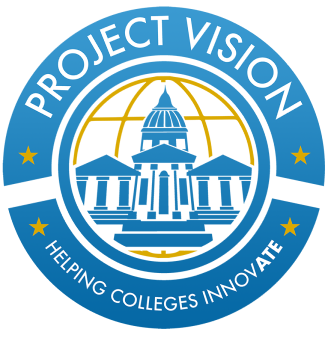HILLSBORO — Jefferson College has been included in a group of 45 two-year colleges not previously associated with Department of Undergraduate Education (DUE) programs, specifically smaller two-year colleges (with focus on rural colleges) or colleges with newer Presidents. The goal of this project is to catalyze submissions of proposals the colleges.

Project Vision, supported by the National Science Foundation (NSF) under Grant No. DUE 2018198, announces their fourth cohort, comprised of 18-colleges. The goal of this project is to catalyze submissions of proposals from 45-2YCs not previously associated with DUE programs.
Not only does Project Vision teams help each 2YCs generate an innovative idea that aligns with DUE funding, but Project Vision supports capacity building at each college, so that these colleges can regularly submit proposals to NSF. Specifically, Project Vision’s staff and team of Subject Matter Experts (SMEs) work with local faculty and staff to create a comfort level in writing grants and looking for growth opportunities. In addition, Project Vision involves College Board of Trustees (BOT), which encourages new college Presidents to pursue DUE funding and thus help grow and sustain the DUE program.
Project Vision’s principal investigator at Jefferson College is Dr. Josephine Kershaw, Dean of Institutional Effectiveness and Equity. According to Dr. Kershaw, “We look forward to working with the Project Vision team to expand Jefferson College’s potential for future NSF funding through the Advanced Technological Education (ATE) program and other Division of Undergraduate Education programs. This project will complement the pending NSF grant for Enabling Partnerships to Increase Innovation Capacity (EPIIC) which aims to broaden participation in the region’s innovation ecosystem.”
Project Vision’s mission is to:
Provide two-year diverse, small, rural colleges, and/or colleges with newer Presidents the expertise to generate innovative ideas that produce award-worthy NSF proposals.
Offer support at all levels of a college ecosystem including Board of Trustees, president, administrators, faculty, and staff.
Provide professional development activities for BOT, presidents, administrators, faculty, and staff by working with these entities to embrace the merits of the NSF Advanced Technological Education (ATE) Program and other Division of Undergraduate Education (DUE) programs.
Provide each college the support needed to build up their capacity and to regularly submit proposals, as deemed appropriate, to the ATE Program and other DUE Programs.
Lead this initiative by a seasoned team of ATE experts, a former college president/CEO, senior college administrators, and former NSF program officers who couple on-site analysis with follow- up services to help each college build STEM and grant capacity.
The 18-colleges selected to participate are:
Cleveland State Community College
Clovis Community College
Colorado Mountain College
Community College of Vermont
East Mississippi Community College
Florida SouthWestern State College
Grand Rapids Community College
James A. Rhodes State College
Jefferson College
McDowell Technical Community College
North Central Texas College
Pensacola State College
Prairie State College
Richard Bland College
Southeastern Community College
University of Arkansas Community College at Hope-Texarkana
Ventura College
Wharton County Junior College
About the National Science Foundation’s ATE Program
With an emphasis on two-year colleges, the Advanced Technological Education (ATE) program focuses on the education of technicians for the high- technology fields that drive our nation’s economy. The program involves partnerships between academic institutions and industry to promote improvement in the education of science and engineering technicians at the undergraduate and secondary school levels. The ATE program supports curriculum development; professional development of college faculty and secondary school teachers; career pathways to two-year colleges from secondary schools and from two-year colleges to four-year institutions; and other activities. For more information about Project Vision, see:
Project Vision is a National Science Foundation (NSF) funded initiative to help colleges discover and match innovative ideas with NSF funding opportunities.
